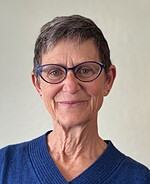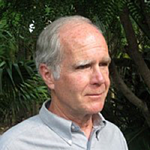There is robust scientific evidence of increased risk of cancer associated with chemical exposures in the environment, which highlights the critical need for a systems approach to cancer prevention. Dr. Ted Schettler opened this webinar with a discussion of the multifactorial, multi-level origins of cancer, highlighting the importance of considering the entire cancer-related exposome, across the life-course and identifying opportunities to reduce cancer risk not only through individual behavioral changes, but also through public policy interventions.
Dr. Barbara Cohn then reviewed some of the evidence for effects of environmental chemicals in pregnancy on cancer and cancer risk. Dr. Cohn discussed the intersection between health disparities and environmental chemical exposure, as well as the importance of windows of susceptibility for exposures during development, and proof of concept studies for 3-generation effects of environmental exposures to pregnant women. Emerging evidence on current chemicals of concern, including per and poly per-fluorinated substances (PFAS) and the promise of new big data and ’omics will also be discussed with examples given. To conclude her presentation, Dr. Cohn will address opportunities for transdisciplinary collaboration to speed finding evidence needed for public health action.
Dr. Polly Hoppin concluded presenting an overview of how cancer prevention research and practice largely focuses on three overlapping areas that envision the individual patient and her provider as the agents of change: precision prevention (e.g., genetic, social and other factors specific to an individual patient); genetics; and health behaviors. She discussed a fourth realm of prevention research and practice, targeting environmental and social factors over which the individual has little control, while governments, businesses, and communities do. These include environmental carcinogens in consumer products, workplaces, and air, water, and soil pollution. Dr. Hoppin discussed what actions impede and hold promise for reducing exposure to environmental carcinogens at the scale needed and how a systems approach informs cancer prevention research and practice.
Featured Speakers
 Barbara A. Cohn, PhD is the Director, Child Health and Development Studies and Senior Research Scientist, Public Health Institute, Oakland, California. Dr. Cohn holds a doctorate in epidemiology, a master's degree in city and regional planning, a master's degree in public health planning and a bachelor's degree in zoology, all from the University of California, Berkeley. Dr. Cohn has been a leader in human pregnancy cohort studies examining the impact of early life and pregnancy exposures on the health outcomes of mothers, fathers and offspring in multiple generations. The Child Health and Development Studies cohort began in 1959 and is now examining data on a third generation. Dr. Cohn’s work focuses on studying the impact of environmental exposures in combination with endogenous responses during pregnancy on metabolic health, reproductive health, cardiovascular disease and cancer risk in three generations, including investigation of the transmission of disparities in health across generations.
Barbara A. Cohn, PhD is the Director, Child Health and Development Studies and Senior Research Scientist, Public Health Institute, Oakland, California. Dr. Cohn holds a doctorate in epidemiology, a master's degree in city and regional planning, a master's degree in public health planning and a bachelor's degree in zoology, all from the University of California, Berkeley. Dr. Cohn has been a leader in human pregnancy cohort studies examining the impact of early life and pregnancy exposures on the health outcomes of mothers, fathers and offspring in multiple generations. The Child Health and Development Studies cohort began in 1959 and is now examining data on a third generation. Dr. Cohn’s work focuses on studying the impact of environmental exposures in combination with endogenous responses during pregnancy on metabolic health, reproductive health, cardiovascular disease and cancer risk in three generations, including investigation of the transmission of disparities in health across generations.
 Polly Hoppin, ScD, is a Research Professor and Program Director for Environmental Health at the Lowell Center for Sustainable Production, University of Massachusetts, Lowell. She integrates understanding of links between exposures and disease with development of solutions, with focus on asthma and cancer, designing and implementing projects grounded in systems thinking, qualitative research and strategic convening. As a Senior Advisor to USEPA and DHHS during the 1990s and as Principal Investigator subsequently, Dr. Hoppin has been a leader on asthma prevention at the national, regional and state levels. She is also co-founder of the Cancer Free Economy Network, a national partnership across multiple sectors seeking to catalyze a shift from hazardous chemicals to safer alternatives, with a particular focus on communities disproportionately exposed. With Lowell Center colleagues and regional partners, Polly has launched a related initiative in Southwestern Pennsylvania to reduce environmental contributors to cancer, and to integrate environmental strategies into cancer prevention. Dr. Hoppin has held numerous leadership positions in organizations ranging from the American Public Health Association and the Massachusetts Public Health Association to Clean Water Fund to the Center for Whole Communities, and has helped found ongoing collaborations including Protected Harvest, the Asthma Regional Council of New England, and the Cancer Free Economy Network.
Polly Hoppin, ScD, is a Research Professor and Program Director for Environmental Health at the Lowell Center for Sustainable Production, University of Massachusetts, Lowell. She integrates understanding of links between exposures and disease with development of solutions, with focus on asthma and cancer, designing and implementing projects grounded in systems thinking, qualitative research and strategic convening. As a Senior Advisor to USEPA and DHHS during the 1990s and as Principal Investigator subsequently, Dr. Hoppin has been a leader on asthma prevention at the national, regional and state levels. She is also co-founder of the Cancer Free Economy Network, a national partnership across multiple sectors seeking to catalyze a shift from hazardous chemicals to safer alternatives, with a particular focus on communities disproportionately exposed. With Lowell Center colleagues and regional partners, Polly has launched a related initiative in Southwestern Pennsylvania to reduce environmental contributors to cancer, and to integrate environmental strategies into cancer prevention. Dr. Hoppin has held numerous leadership positions in organizations ranging from the American Public Health Association and the Massachusetts Public Health Association to Clean Water Fund to the Center for Whole Communities, and has helped found ongoing collaborations including Protected Harvest, the Asthma Regional Council of New England, and the Cancer Free Economy Network.
 Ted Schettler, MD, MPH, is the Science Director of Science and Environmental Health Network (SEHN). He received his MD from Case-Western Reserve University and a master's degree in public health from the Harvard School of Public Health. He practiced medicine for many years in New England. Ted has worked extensively with community groups and non-governmental organizations throughout the US and internationally, addressing many aspects of human health and the environment. He has served on advisory committees of the US EPA and National Academy of Sciences.
Ted Schettler, MD, MPH, is the Science Director of Science and Environmental Health Network (SEHN). He received his MD from Case-Western Reserve University and a master's degree in public health from the Harvard School of Public Health. He practiced medicine for many years in New England. Ted has worked extensively with community groups and non-governmental organizations throughout the US and internationally, addressing many aspects of human health and the environment. He has served on advisory committees of the US EPA and National Academy of Sciences.
Ted is co-author of Generations at Risk: Reproductive Health and the Environment, which examines reproductive and developmental health effects of exposure to a variety of environmental toxicants; In Harm's Way: Toxic Threats to Child Development; Environmental Threats to Healthy Aging: With a Closer Look at Alzheimer' and Parkinson's Diseases, and; A Story of Health eBook and continuing education course. He is the author of The Ecology of Breast Cancer: The Promise of Prevention and the Hope for Healing.
Among many others, Ted's current projects include active participation in the Health Care Without Harm coalition, contributing to its international campaign to improve the environmental performance of hospitals and other healthcare institutions. Ted and SEHN often work in collaboration with colleagues from other organizations.
This webinar was moderated by Karen Wang, PhD, director of CHE. It lasted for 70 minutes and was recorded for our call and webinar archive.
